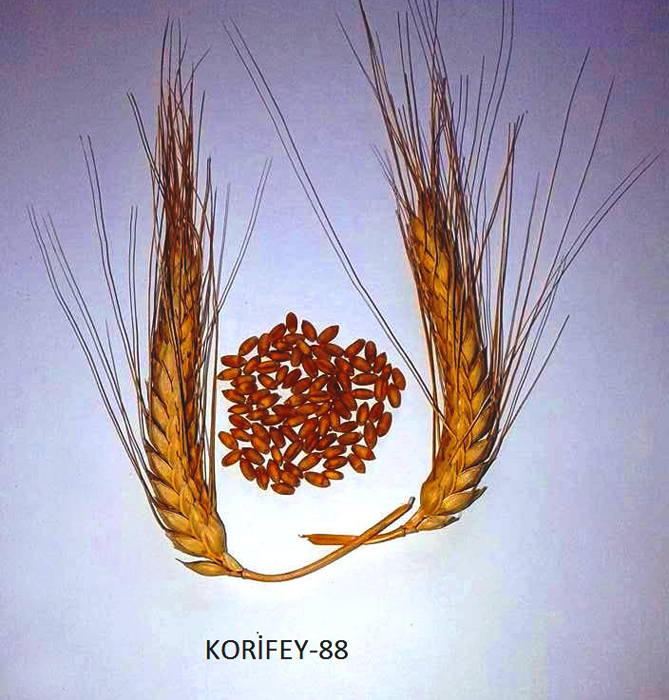
Institute of Genetic Resources (IGR) of ANAS continues the effective activity in the field of food security in the country for about 65 years. The Institute has organized international and local expeditions several times, collected local varieties of strategically important agricultural plants and their wild ancestors, and also provided long-term storage in the National Gene Bank for future generations through genetic certification of plants.
Currently, the Institute’s National Gene Bank holds more than 3,000 wheat samples, including all local varieties.
In recent years, the IGR has significantly expanded its ties with international organizations, gaining access to world wheat collections and their genomic data. In 2019-2020, more than 1,500 wheat samples were brought into the country, and research work began on them. As a result of many years of applied and fundamental research conducted at the institute, a large number of new wheat varieties were created (“Sevinj”, “Jafari”, “Arzu”, “Bol-Bugda”, “Gurgan-1”, “Zardabi”, “Birlik”, “Grekum-75/50”), “Kakhraba”,“Gizilbugda”,“Saray”,“Absheron”, “Maya”, “Start” and others) and their cultivation was provided in large farms.
In 2020, scientists from IGR and the Research Institute of Agriculture of the Ministry of Agriculture patented and regionalized 3 new varieties of wheat (“Korifey-88”, “Janub”, “Majrani”, “Bugda). A new variety of durum wheat - "Corypheus-88" was created by repeated individual selection from a hybrid line obtained by crossing varieties obtained from Russia. The potential yield of the Corypheus-88 variety is medium (54-58 s / ha), adaptability is high. It is recommended to grow Corypheus-88, the leader among durum wheat varieties in terms of the number of grains, on the irrigated plains and moisture-rich foothills of Azerbaijan.
The Janub soft wheat variety was created by individual selection from a complex hybrid selected in international nurseries. The average three-year yield in the competitive Janub variety was 63.2 s / ha, which is 4.0 s / ha more than the standard Aran variety. Over the years, it has shown resistance to yellow and brown rust. It is proposed to cultivate the Janub variety on the irrigated plains and foothills of the republic.
A new variety of winter soft wheat "Majrani Bugda" was created by individual selection from a hybrid line obtained by crossing Ferrigineum (Russia) X Bely (Azerbaijan) varieties stored in the National Genebank, Jalilabad Regional Experimental Station, Agricultural Research Institute. Due to the fact that this variety hibernates well, its yield is higher than that of other varieties. Due to the intense pigmentation of plants, photosynthesis processes are ativized, as a result of which the plants remain green for a long time. It is recommended to grow the Majrani Bugda cultivar in mountainous and foothill arid regions not provided with moisture.